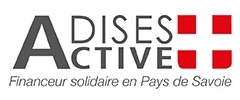Women, Diversity and Agriculture at Planet Diversity
WECF and Women and Life on Earth stressed the extreme importance of women’s points of views when it comes to biodiversity during plenary session Planet Diversity, Bonn
16.05.2008 |Chantal van den Bossche

Six women from different continents and with different backgrounds and with different outlooks on lifes took the stand behind the panel table during the final plenary session of Planet Diversity on May 15th to express their concern about women’s views not being fully taken into account when talking about biodiversity. WECF’s Sabine Bruckmann illustrated the action of the women by taking the microphone saying ‘We need two eyes to see straight’ to emphasise the fact that women’s views should naturally and always be taken into account when talking about biodiversity. We must have a women’s voice.
Earlier on, during the women’s workshop it was decided that women’s voices had to be heared, apart from the women who would be there presenting the manifesto. During Planet Diversity, the NGO event that takes place during the United Nations Convention on Biodiversity, WECF organised together with ecofeminist organisation Women and Life on Earth a workshop “Women, diversity and Agriculture” in which strategies for survival and solidarity were formulated.The outcome of the workshop was to have a clear woman’s voice at the closing plenary of Planet Diversity, apart from the call for a moratorium on GMO’s and the dangers of agrofuels.
Empowering women
The goal of this workshop was to identify and discuss ways and means to protect and secure communities, healthy foods and agricultural production by engaging and empowering women.
The first speaker was Marie Mies, ecofeminist from Diverse Women for Diversity. She thought it would be a terrible thing if the whole world opened up investors in food. This will have enormous consequences and not only for poor countries. According to her we have to do something against it. “This is nothing new, we talk about hunger and keep talking about it, in 1996 and in 2008. It’s not just the big multinationals, or WTO or the World Bank who follow this policy of globalisation, liberalisation. That is the policy today and was the policy years ago. All the big UN organisations, media, everybody says that we have to produce food in order to combat hunger, but we don’t seem to learn from it. We have to fight the big corporations who really profit from this. Food security is the main basis for life an earth, without diversity there will not be life on earth. We have gone back, we are not going forward. Where do we go from now? It is important to reflect otherwise we have to repeat the same things again and again. We have to make clear that it is not just poverty in the poor countries that we have to fight, now hunger is threatening the rich countries – it is already visible in the US.
We are not gender, we are women
The next speaker Marie Aminata Khan from the Montreal secretariat of the CBD, the Convention on Biodiversity, took the toll of most of the women present by stating that CBD were training women, and specifically indigenous women on how their voices could be heard. A critical note from the audience was that it was not the women who should be trained to be heard, but the men who should be trained to listen. Another critical remark was made about the strategic objectives of the CBD concerning gender mainstreaming and gender equality in the field of biodiversity. “We are not gender, we are women. Gender does not exist” was a remark being heard a lot.

Urban gardens
Elisabeth
Meyer-Renschhausen, author and academic
from Berlin, presented a slideshow about urban gardening “The new
Gardening and Greening movement: biodiversity from inner city vacant lots,
urban farms and community gardens”
Elisabeth had been actively involved in
creating urban gardens in the Bronx and Harlem in New York. In the Bronx, on
the Red hook market, women and youngsters were growing their own vegetables. Young
boys are proud to build their informal market, it’s an informal system in the
rich cities as they do not have to pay taxes,.
There are more and more organic gardens growing in Harlem and the Bronx.
Even in the richer parts of New York
there are now gardens – even in Manhattan. Now there’s a second wave of organic
gardening attracting young people.
Hope
Next speaker was Farida Akhter, executive
director of a Bangladesh policy and advocacy institute. She was asking the
audience: “How are you going to feed 6 billion people? But biotechnology cannot feed the world too.
By 2010 we would feed the world and we still have 850 million hungry people in
this world – this is the contribution of biotechnology.
Fortunately, she said, biodiversity has
become an issue. The farmers are coming to the big meetings. And when they
speak out you can see that that changes the whole thing. In the woman’s movement in Bangladesh
biodiversity has become a big issue. There is a positive change. That is the
hope.
Food and water
Statements followed from Burkina Fasso, where men are always approached first when it comes to agriculture and biodiversity, while the women are taking care of the garden and raise the vegetables around the house. Another testimony came from Columbia, a heartfelt monologue from a mother of a five year old son from a country in war.
Everyone agreed that once there was biodiversity, once there was food and water. Food and water cannot be privatised, bought or sold. The Columbian woman heard on her flight to Madrid the crew talking to each other: “We are running out of water for the second class passengers”. There is something definitely wrong she thought, when we have to buy water, because then we are impoverishing ourselves. Izabella Byszewska of the Social Ecological Institute (SEI), Poland told about saving and serving traditional foods and dishes. She got involved in a project bridging between Poland, Ukraine and Germany Green Bridges, where small farmers are rediscovering small varieties of local produce and reintroduc them onto the market. This can bring money into the area, can solve ecological issues and nature and tourism can be developed.
Related News
Round table discussion Violence Against Women and Economic Development
The round table treated the topic of Violence against women and Economic Development
13.12.2017
Women Ministers and Leaders Breakfast Meeting Report
On the 5th of December more than 100 female ministers and leaders met, and discussed the topic of Gender and a Pollution Free Planet
11.12.2017
WECF board member took part in seminar on CEDAW General Recommendation
Utrecht University organised the seminar in the light of the new CEDAW General Recommendation on gender-related dimensions of disasters in a changing climate
17.10.2017
WECF participated at WASH symposium in Uganda
From June 20th-23rd, a WASH symposium was held in Kampala, Uganda. WECF participated in cooperation with our local partner organization ARUWE and we presented our water, sanitation and energy projects in Uganda.
23.06.2016
We've made it - overwhelming success of our crowdfunding campaign!
In the last 4 weeks we run a crowdfunding campaign to collect 4.000€ to finance 15 Biogas Toilets for deprived families in Uganda. Thanks to your great support we can now build even more!
22.06.2016






































